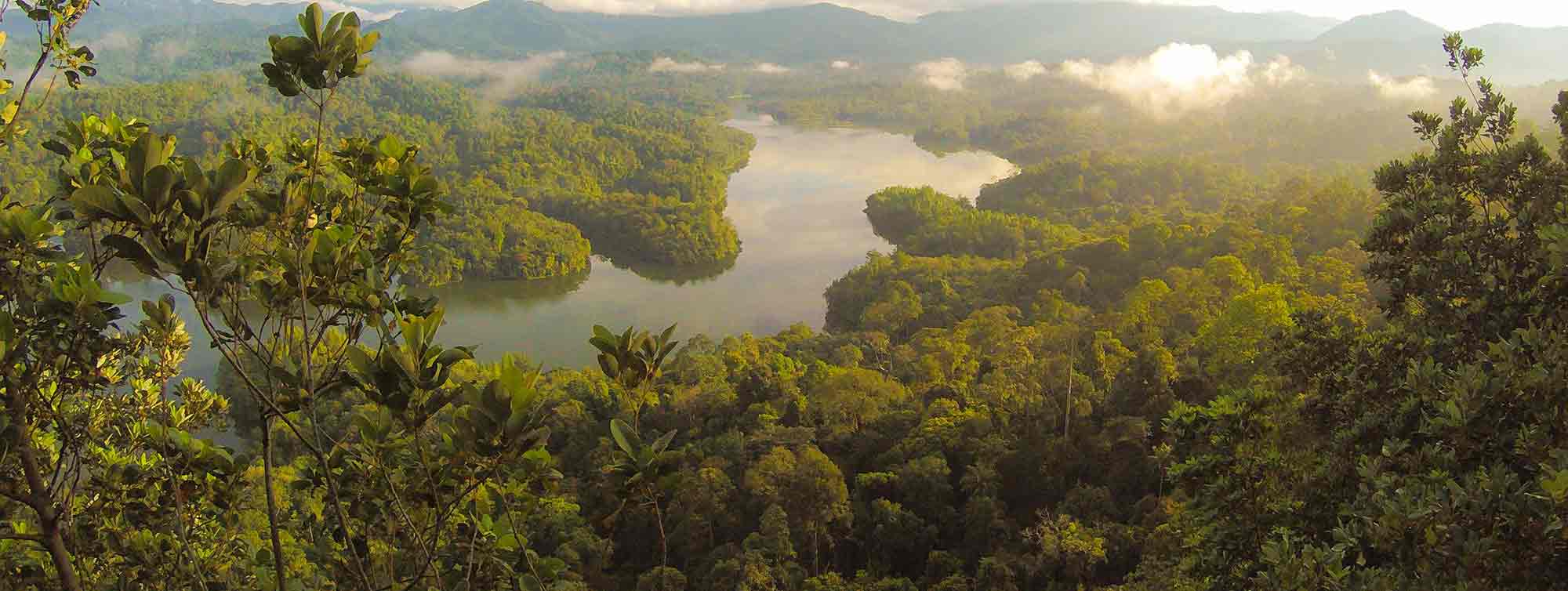432 Resources
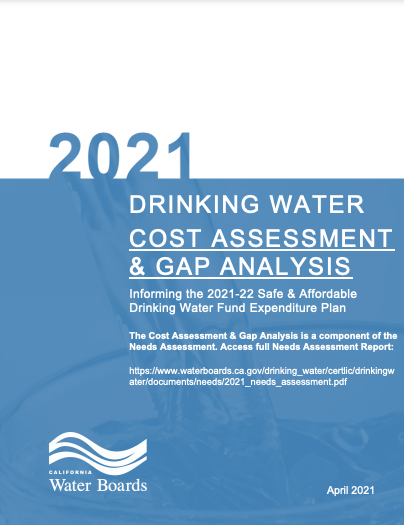
Drinking Water Cost Assessment & Gap Analysis
April 30, 2021 | publication
In 2012, California’s Human Right to Water was passed, calling for safe, clean, affordable, and accessible water for all citizens. Then in 2016, the California State Water Resources Control Board (State Water Board) adopted a Human Right to Water Resolution, making the Human Right to Water a primary consideration and priority across its programs.
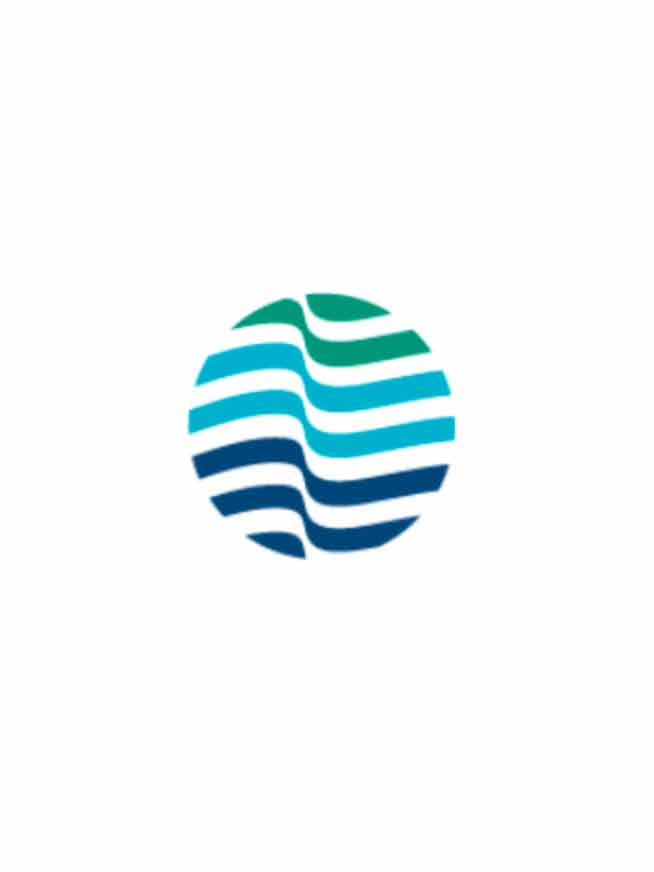
Op-Ed: Yes, California is in a Drought — Even if Officials Aren’t Saying it out Loud
April 16, 2021 | publication
California is suffering from severe drought again. This winter produced water conditions far below normal for the second year in a row, the eighth year in the last 10, the 14th year in the last 20. Los Angeles has had 39% of normal precipitation; San Diego, only 30%; San Francisco, 37%; Sacramento, less than 40%.
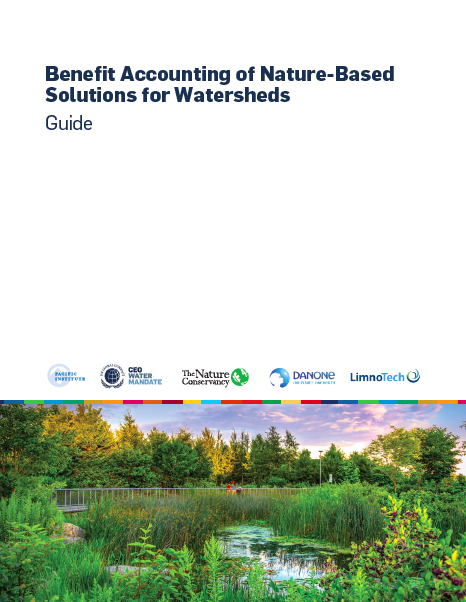
Benefit Accounting of Nature-Based Solutions for Watersheds: Guide
March 4, 2021 | publication
Nature-based solutions use or mimic natural processes to meet societal and environmental needs. They can be used to restore, manage, or protect water resources while also increasing biodiversity and providing additional social and economic benefits. Yet there is no standardized method to identify, estimate, and monitor the benefits that nature-based solutions can provide, making it hard to build the case for investments in these solutions.
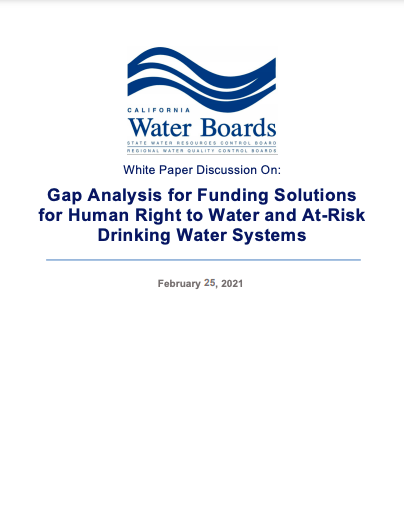
Gap Analysis for Funding Solutions for Human Right to Water and At-Risk Drinking Water Systems
February 25, 2021 | publication
In 2012, California’s Human Right to Water was passed, calling for safe, clean, affordable, and accessible water for all citizens. Then in 2016, the California State Water Resources Control Board (State Water Board) adopted a Human Right to Water Resolution, making the Human Right to Water a primary consideration and priority across its programs.
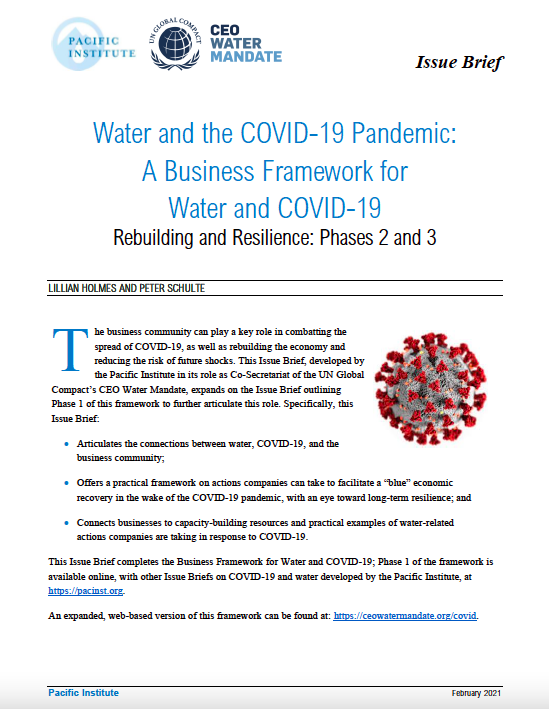
Water and the COVID-19 Pandemic: A Business Framework for Water and COVID-19: Rebuilding and Resilience
February 2, 2021 | publication
The business community has a key role to play in responding to COVID-19, rebuilding the economy, and preventing and mitigating future shock events — both broadly speaking and specifically regarding water and handwashing. This second in the Pacific Institute’s Business Framework for Water and the COVID-19 Pandemic issue brief series continues to explore the role of businesses in a robust COVID-19 response, outlining how businesses can contribute to a “blue” economic recovery and help make society more resilient to future shocks.
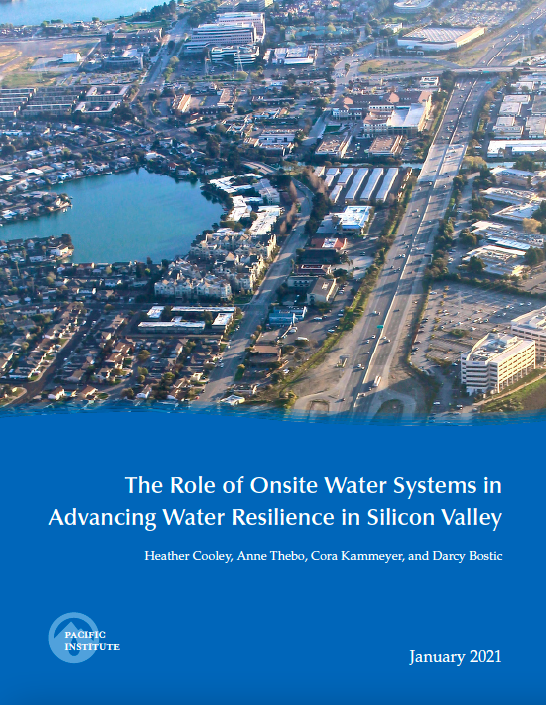
The Role of Onsite Water Systems in Advancing Water Resilience in Silicon Valley
January 28, 2021 | publication
California’s Silicon Valley faces a host of water challenges. The region’s water and wastewater infrastructure are aging, and in some cases are nearing the end of useful life. Continued growth and development are putting additional strains on the region, and climate change is adding to that burden through sea level rise, more intense storms, and more severe droughts. These challenges present risks but also an opportunity to rethink the design, configuration, and operation of water and wastewater systems.
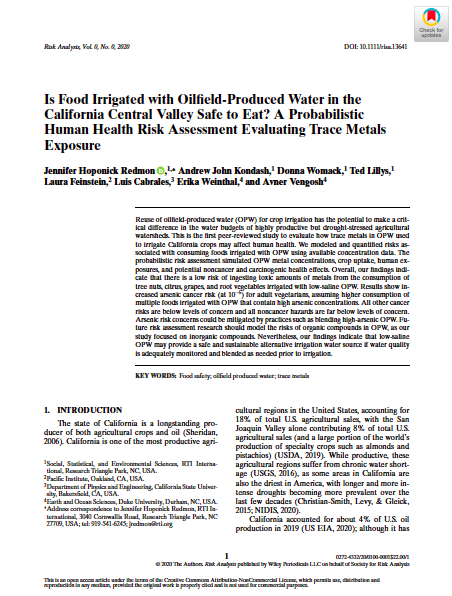
Is Food Irrigated with Oilfield-Produced Water in the California Central Valley Safe to Eat? A Probabilistic Human Health Risk Assessment Evaluating Trace Metals Exposure
December 18, 2020 | publication
In California, drought and a reduction in natural water availability in recent decades have led to a search for alternative water sources for agriculture. One controversial potential source is produced water a byproduct of oil extraction.
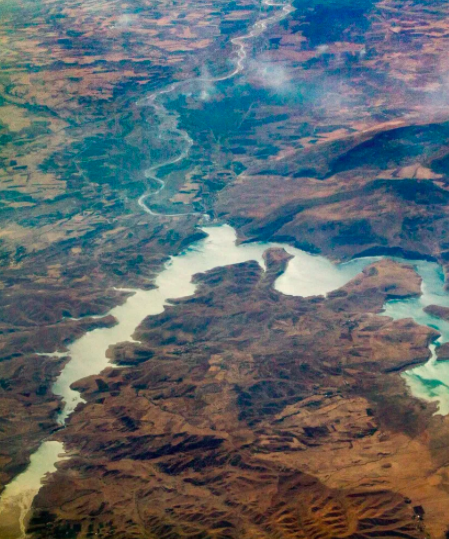
Op-Ed: Water Scarcity Will Increase Risk of Conflict, Says New National Intelligence Report
December 9, 2020 | publication
On December 20, 2019, President Trump signed into law the National Defense Authorization Act (Public Law 116-92), including the Intelligence Authorization Act of FY2020. Section 6722 of that law required a report be prepared on the national security effects of “global water insecurity” and be submitted within 180 days (by late June 2020) to “the congressional intelligence committees, the Committee on Foreign Affairs of the House of Representatives, and the Committee on Foreign Relations of the Senate.”
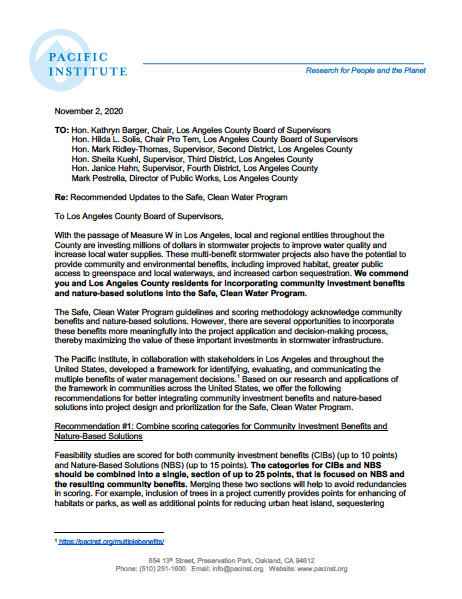
Comment Letter on Recommended Updates to Los Angeles’ Safe, Clean Water Program
November 13, 2020 | publication
Investing in water management can provide multiple benefits to communities and the environment. During 2019 and 2020, the Pacific Institute engaged with stakeholders in Los Angeles, California to increase consideration of co-benefits as part of their innovative, regional stormwater funding, called the Safe, Clean Water Program.
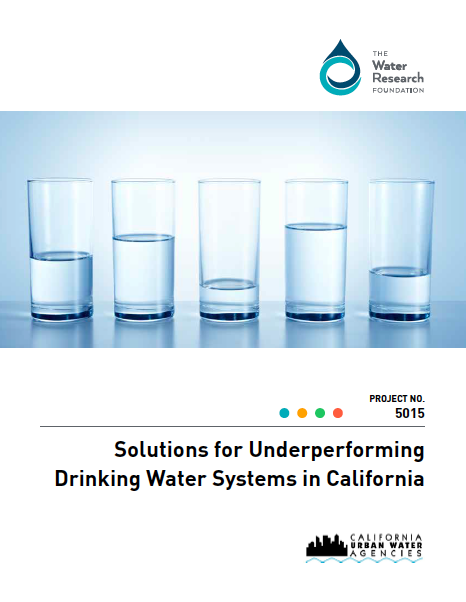
Solutions for Underperforming Drinking Water Systems in California
October 29, 2020 | publication
California passed the Human Right to Water in 2012, acknowledging that every resident has a right to safe, clean, and affordable drinking water. Both large and small water systems struggle to provide safe drinking water; however, small systems face the greatest challenges.
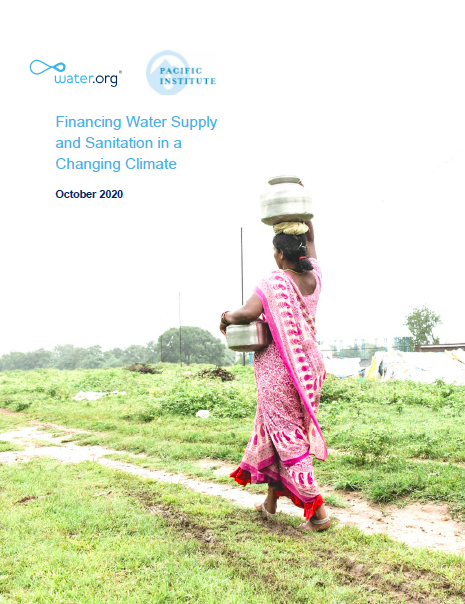
Financing Water Supply and Sanitation in a Changing Climate
October 22, 2020 | publication
Human-caused climate change is real and accelerating, creating new challenges for all aspects of freshwater management, including meeting basic human needs for water and sanitation. Important gaps in our understanding of these challenges include both the complications climate change poses for planning, implementing, and sustaining water supply and sanitation systems, especially for the poor; and the links between these systems and the emissions of greenhouse gases that worsen the overall climate problem.
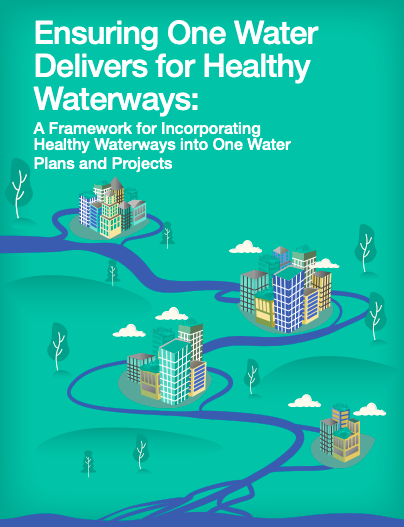
Ensuring One Water Delivers for Healthy Waterways: A Framework for Incorporating Healthy Waterways into One Water Plans and Projects
October 12, 2020 | publication
As forward-thinking cities become increasingly adept at capturing and reusing wastewater, stormwater, and greywater, essential river systems may be at risk. The “One Water” approach to water management emphasizes an integrated planning and implementation approach that acknowledges the finite nature of water resources and prioritizes long-term resilience and reliability.
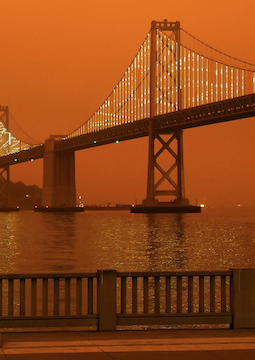
Op-Ed: The Future Has Arrived. These Explosive Fires Are Our Climate Change Wakeup Call
September 14, 2020 | publication
Like millions of people in the western United States this week, I woke up to deep red, sunless skies, layers of ash coating the streets, gardens, and cars, and the smell of burning forests, lives, homes, and dreams. Not to be too hyperbolic, but on top of the political chaos, the economic collapse, and the worst pandemic in modern times, it seemed more than a little apocalyptic.
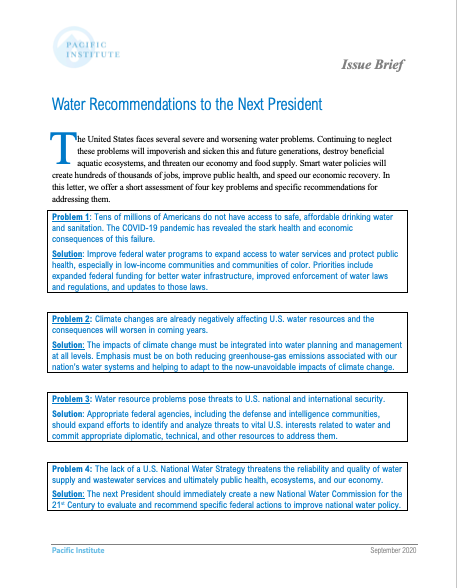
Water Recommendations to the Next President
September 13, 2020 | publication
Every human being needs safe and affordable water, but in the United States, tens of millions of people still lack it. As the COVID-19 pandemic revealed, poor water infrastructure and the failure to provide universal access to safe water and sanitation threaten public health. Meanwhile, water shortages, poor management, and antiquated water systems threaten the nation’s food supply, ecosystems, and economy.
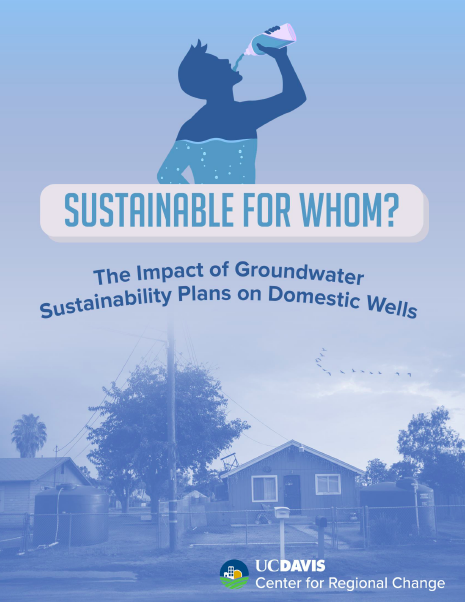
Sustainable for Whom? The Impact of Groundwater Sustainability Plans on Domestic Wells
September 5, 2020 | publication
Studies estimate that 1.5 to 2.5 million Californians rely on domestic wells to meet their household water needs, but because domestic wells are often shallow, they are often sensitive to changes in groundwater levels. Thus sustainable groundwater management has an important role to play in safeguarding the health and safety of Californians and the achievement of the state’s recognized human right to water.
Page 5 of 29
From the Blog
- Feb 20, 2026
- From Davos: Scaling Business Leadership on Water Resilience
- Dec 16, 2025
- Colorado River Deadlines & Incentives
- Dec 02, 2025
- A Year-End Conversation with Jason Morrison
- Nov 13, 2025
- Pacific Institute Convenes Leaders to Accelerate Corporate Action on Water Resilience in California
- Nov 03, 2025
- Air Pollution and Health in the Coachella Valley


